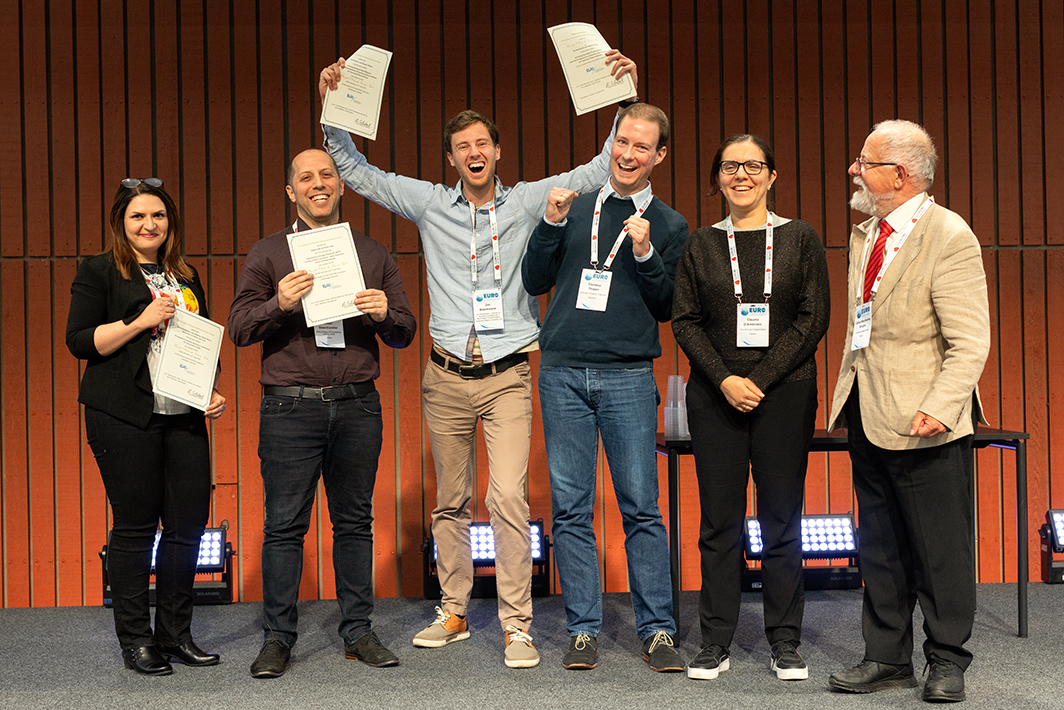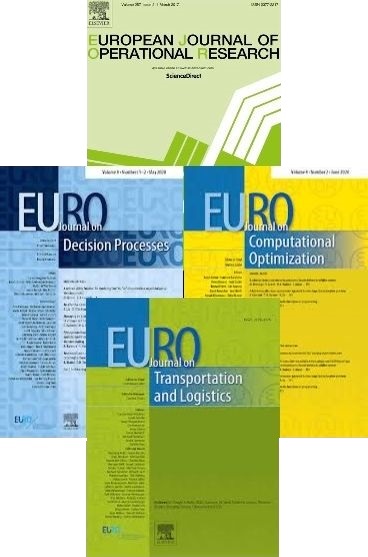EURO Prize for OR for the Common Good
In 2020 EURO introduced the EURO Prize for OR for the Common Good (EPOCG). This prize shall honour outstanding accomplishments of OR for solving social-oriented problems. Contributions with a global scope and a wide range of potential applications are preferred. All interested candidates are invited to submit a description of an application of OR with a real impact on society for the common good, with original features, whether in methodology, application or implementation. A short-list of finalists are invited to present their work in a special session of the EURO-k Conference. The winner is determined by the jury at the end of the special session(s) and is announced by the chair of the jury during the closing session of the EURO-k Conference. Only one award may be made on each occasion.
PURPOSE
- recognise outstanding contributions to addressing global challenges through the application of OR,
- raise awareness of the important role OR can play in contributing to global challenges such as the UN Sustainable Development Goals.
THE PRIZE
- a certificate of for each representative of the paper
- an amount of €3,000 shared between the representatives.
The winners of the 2024 EURO Prize for OR for the Common Good are:
Jan Boeckmann - Institute for Business Analytics and Technology Transformation, Johannes-Kepler University Linz
Clemens Thielen - TUM Campus Straubing for Biotechnology and Sustainability, Technical University of Munich
Rethinking Municipal Flood Mitigation: A Real-World Application of Operations Research Methods for Improving Climate Resilience

The EPOCG 2024 jury consisted of Cathal Brugha (chair), Claudia D'Ambrosio, Alec Morton, Eeva Vilkkumaa, Ulrike Reisach.
The presentation was made at the closing session of the EURO 2024 Conference in Copenhagen (Denmark).
The period for applications for the 2025 EPOCG is closed.
Jury of the EURO Prize for OR for the Common Good 2025
- Claudia D'Ambrosio (France) - chair
- Alec Morton (UK)
- Marie Schmidt (Germany)
- Maria-Antónia Carravilla (Portugal)
- Henrik Andersson (Norway)
The period for nominations for the 2028 EPOCG is not yet open.

This work is licensed under a Creative Commons Attribution-ShareAlike 3.0 International License and the GNU Free Documentation License (unversioned, with no invariant sections, front-cover texts, or back-cover texts).
